Britain’s Best Heavy Metal Bands of All Time
America may have embraced heavy metal like its own flesh and blood in the post-Beatles-and Rolling-Stones age, but the roots of heavy metal are unmistakably British. Britain’s harsh industrial cityscapes of the ‘60s and ‘70s, an oppressive working-class environment and the escalating war in Vietnam became the ultimate hotbed of a new generation of rock stars that embraced loudness, rebelliousness and disruptive sound like never before. Britain’s best heavy metal bands, many of whom continue to fill arenas worldwide to this day, include legends like Black Sabbath, Deep Purple, Judas Priest and Iron Maiden.
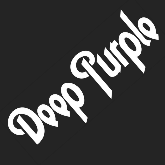
Deep Purple together with Black Sabbath and Led Zeppelin have been hailed as the ‘unholy trinity’ of British hard rock and heavy metal. One of the prototypical heavy metal bands, Deep Purple was founded nearly 50 years ago in Hertford, just north of London, and brought unlikely instrumental virtuosity to the working-class roughness and back-then predominant amateurishness of the genre. Ian Gillan’s searing vocals and Ritchie Blackmore’s insane guitar riffs and pyrotechnics raised the group to prominence throughout the early ‘70s.
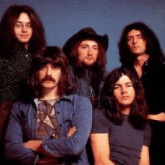
Millions of sold copies of ‘In Rock’, ‘Fireball’ and ‘Machine Head’, the last of which made it twice to the U.S. Top 10, cemented Deep Purple’s presence and influence both in the UK and overseas. The band has sold over 100 million albums. They were listed as ‘the globe’s loudest band’ in the Guinness Book of World Records and inducted into the Rock and Roll Hall of Fame in 2016. The band has weathered through several line-up changes, but is still touring today with Joye Tempest as frontman, currently promoting their latest album ‘Walk the Earth’.
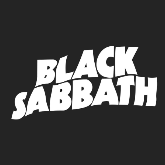
Formed by four schoolmates from a working-class area of Birmingham in 1969, Black Sabbath became the epitome of Britain’s early heavy metal – crude, intense, and breaching social taboo themes like corruption, drugs and social ostracisation. Bringing together bassist Geezer Butler’s occult-dominated lyrics, guitarist Tony Iommi’s phenomenal riffs and Ozzy Osbourne’s unearthly vocals was a quick roll into success. Their eponymous debut album in 1970 went straight to #8 in the UK and #23 in the U.S. The same year, the ‘Paranoid’ single shot up to #4 in the UK.
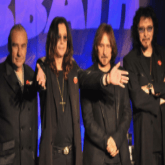
Their hot streak of successful first six albums and tireless touring through the U.S. planted the seeds for the New Wave of British Heavy Metal (abbr. NWOBHM), an underground music phenomenon in the late ‘70s with extremely intense, aggressive songs and raw self-produced records. Ozzy’s exchange with Ronnie James Dio, a Rainbow veteran, in 1979 pulled the band out of stagnancy and produced a few more iconic-to-be albums in the ‘80s. The original group members would reunite for Ozzfest on numerous occasions, and ‘Iron Man’ from the 1997 live album ‘Reunion’ would earn a Grammy for Best Metal Performance. Black Sabbath were inducted in the UK Music Hall of Fame in 2005 and have over 70 million records sold to date.
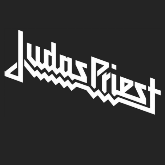
These self-proclaimed and indeed ‘Metal Gods’ started small and quite under the radar for a while, from the same steamy industrial backstreets of Birmingham just like their brethren from Black Sabbath. Judas Priest was started by K.K. Downing (guitar) and Ian Hill (bass) in 1969 and would fare as a quintet. Downing and Glen Tipton’s twin guitar attacks and frontman Rob Halford’s scorching falsettos matched both the expressive intensity of Black Sabbath and Deep Purple’s elaborate sound. Their live shows, with Halford arriving onstage on a Harley Davidson, were a peak of extravagance, and the leather-and-studs look became a trademark of heavy metal.
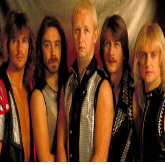
Judas Priest first scored big with the album ‘British Wheel’ (1980), hitting #34 in the U.S. Songs like ‘Breaking the Law’ and ‘Living After Midnight’ made it to UK Top 20. After years of U.S. touring and soon after the gold ‘Painkiller’ (1990), Halford stepped away and the band recruited Tim ‘Ripper’ Owens as a vocalist. Four decades and 50 million albums later, Judas Priest is still touring and awaiting its induction into the Rock and Roll Hall of Fame, with the upcoming album ‘Firepower’ on line.
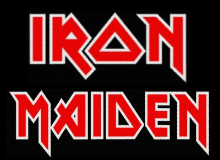
Iron Maiden were among the pioneers of NWOBHM but unlike most of its representatives, they managed to survive and outgrow the movement. Formed by bassist Steve Harris and guitarist Dave Murray in east London in 1976, Iron Maiden, like a true new wave band, released their first EPs on their own label and garnered marginal success. Their eponymous 1980 album hit UK Top 5 and ‘Killers’ (1981) reached #12. Harris’ unusually erudite lyrics featuring elements from cinema and mythology and Eddie The Head, the band’s corpse mascot, became a Maiden hallmark.
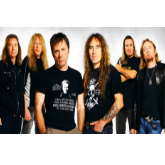
They have gone from raw to polished throughout the years, with numerous line-up changes, most notably original frontman Paul Di’Anno followed by power machine Bruce Dickinson. Spawning numerous gold and platinum records in the UK and US throughout the 80s, 90s and early 2000s and having sold close to 100 million copies to date, Iron Maiden are as close to a British heavy metal legend as there is. Albums like ‘The Number of the Beast’ (1982), ‘Fear of the Dark’ (1992), ‘A Matter of Life and Death’ (2006) have solidified their place in the pantheon of Britain’s best heavy metal bands.
Temple Festival Bands

Neurosis is one of the pioneers that spearheaded the creation of post-metal sub-genre. They started off 1985 as a hardcore punk band. They have since developed their unique sound by experimenting with sludge, hardcore and doom metal which started to become apparent in their second album 'The Word as Law' (1990). Neurosis is also known for their media visuals during their live performances.

Converge is a US metalcore band that became popular in the early 2000s with their 'Jane Doe' and 'You Fail Me' albums. They are one of the most influential groups in their genre. What is typical about their music is its aggressive tones and rhythmical complexity. Their frontman Jacob Bannon is famous for his emotional performances, and erratic movements live on stage.
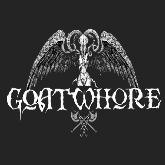
Goatwhore has a fusion blackened death metal style which is popular with many fans. The themes of their songs are many, but their main focuses are Satanism, anti-Christianity, witchcraft and the occult, with Armageddon and the Holocaust becoming one of their more recent ones. Black metal and sludge have a great influence on their sound. Some of their best works are considered to be 'Constricting Rage of the Merciless', 'Blood for the Master' and 'Carving out the Eyes of God'.
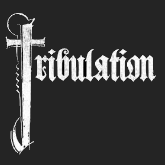
Hailing from Sweden, Tribulation is a death metal band drawing inspiration from old school heavy metal, psychedelic and Gothic rock. Their music tends to have a calmer and more melodic nature compared to other bands and is based heavily on occult and supernatural themes. The band members put on a lot of heavy makeup during live concerts and include incense burning into their act.
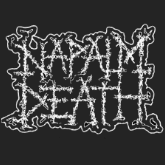
Napalm Death is an English group that has paved the way for the grindcore genre. Their songs are rather short and fast-paced often with sociopolitical lyrics. They are best known in the worldwide metal community for their 1st album 'Scum'. Napalm Death is popular among its fans for their blastbeat drums, fast tempo, grinding bass and distorted toned-down guitar riffs. The band's song 'You suffer' is considered by Guinness as the shortest song ever.
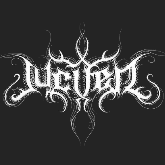
Jucifer is a two-person American sludge metal band. Unlike most performers, the duo is always on tour since the mid-90s. Along with their nomadic way of life, Jucifer is also considered to be loud by metal fans. Their volume is further attested by the vast wall of amplifiers behind its guitar lead Gazelle Amber Valentine during concerts. Another interesting fact is that their 'Twenty Years Slaying Ears' tour included 32 countries.
